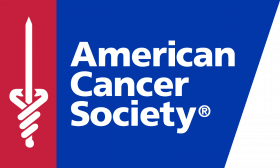Under the broad direction and supervision of the Senior Director, Cancer Control Interventions, this position leads the Tobacco Cessation Public Housing Initiative to increase the demand of tobacco cessation services for residents of public housing. Leads ACS’s activities to coordinate with the regional cancer control staff and key external stakeholders, including public housing authorities and community health centers to ensure effective implementation of program activities and dissemination of tobacco cessation best practices across the nation. This position will be responsible for managing six pilot sites, working closely with the North American Quitline Consortium in Phoenix, Arizona and the Smoking Cessation Leadership Center at the University of California in San Francisco. Serves as an expert in the communication and dissemination of best practices and cancer control resources in tobacco control. Serves as expert resource to other ACS departments including ACS CAN, Research, Cancer Control Programs and Services and works closely with the ACS Tobacco Control Center to ensure appropriate integration of tobacco cessation activities into other ACS priorities. Represents ACS externally through collaborative initiatives, and national, state and local presentations.This is a $1.3 million Robert Wood Johnson Foundation grant (RWJF) to deliver best practices for tobacco cessation services to residents of public housing. This position is supported by the RWJF grant for a two-year project period starting April 1, 2018.
- Under the broad direction and supervision of the Senior Director, Cancer Control Interventions leads the development and execution of all project activities, including managing the Project ECHO Hub and the six pilot sites working closely with the North American Quitline Consortium, the Smoking Leadership Center, the regional cancer control staff and other key stakeholders, including the public housing authorities.
- In collaboration with the ACS regional cancer control staff and other key stakeholders, identifies and recruits community health centers (CHCs) and public housing partners to participate in the Tobacco Cessation ECHO that supports the training of health providers and public housing partners in the delivery of tobacco cessation services to residents of public housing.
- Builds, manages, and sustains relationships with the public housing partners and community health centers to achieve tobacco cessation program goals, priorities, and outcomes.
- Leads a nationwide dissemination plan and strategy to broad and diverse audiences focused on program successes and lessons learned to increase tobacco cessation support options for residents of public housing.
- Manages the initiative through discovery to evaluation, including developing processes and managing work flows to ensure timely and effective coordination and communication with internal and external partners.• Provides training and technical assistance in collaboration with key external partners to the ACS regional cancer control staff for purposes of program development and delivery of programmatic strategies.
- Develops, coordinates, and manages the grant agreements with the North American Quitline Consortium and the Smoking Cessation Leadership Center.
- Monitors science and trends, emerging issues, best practices for advancing tobacco cessation strategies especially for high-burden populations such as residents of public housing.
- Works collaboratively with Data Manager, Community Initiatives, and other stakeholders as needed to evaluate initiatives and monitor progress.
- Reviews and analyzes tobacco cessation data and information published in the cancer and broader public health scientific literature.
- Monitors external landscape in tobacco cessation and public housing for purposes of informing strategy development and new opportunities.
- Prepares briefing papers, presentation, talking points, and other related publications on this tobacco cessation initiative for multiple stakeholders.
- Writes and communicates regular program reports/updates to keep stakeholders and funders informed of progress.
- Monitors programmatic and spending activities of selected community projects and provides technical guidance and support.
- Conducts special projects and initiatives as needed.
- Minimum 10 years’ experience in a non-for-profit organization — including communications/dissemination and cancer control experience at the national, state, community levels—and experience in working with leaders, professional and administrative staff and external partners to accomplish program deliverables
- Knowledge of current and emerging scientific evidence related to tobacco cessation and health disparities and health equity
- Knowledge of the ACS enterprise and the ACS Regions
- Knowledge of ACS culture and organization required
- Knowledge in health communications and dissemination strategies and technology platforms
- Knowledge of program/product development, delivery and management
- Knowledge in budget management and contract development and execution
Demonstrates Prevention and Early Detection Competencies:
- Decision quality - Uses good judgment about whether to act independently or to escalate an issue
- Strategic mindset - Considers future possibilities and scenarios that may affect the team/organization
- Plans and aligns - Aligns own work plans and priorities with those of other units
- Drives results - Maintains work focus despite obstacles or setback.
- Collaborates - Involves others as appropriate to accomplish individual and group goals
- Builds networks - Uses networking skills to reach people who can provide insight and influence outcome.
- Drives vision and purpose - Conducts work with a meaningful sense of purpose.
- Situational adaptability - Adapts to changing needs, conditions, priorities, or opportunities
Other Skills:
- Demonstrated skill in leading, coordinating and managing project/program activities.
- Demonstrated skills in health communications and dissemination planning and strategies
- Ability to manage projects/initiatives effectively, consistent with the Society’s mission and goals.
- Ability to work and collaborate effectively with internal and external stakeholders
- Ability to work and collaborate with the regional cancer control staff
- Outstanding interpersonal, relationship management and communication skills, including public speaking and written communication.
- Excellent organizational skills and ability to manage multiple and competing priorities
- Ability to effectively manage partner agreements and external collaborations
SPECIAL MENTAL OR PHYSICAL DEMANDS:
- Occasional travel
We are committed to providing staff with fulfilling opportunities to learn, grow and make an impact in their local communities. We offer staff a generous paid time off policy; medical, dental and retirement benefits, and professional development programs to enhance staff skills.
